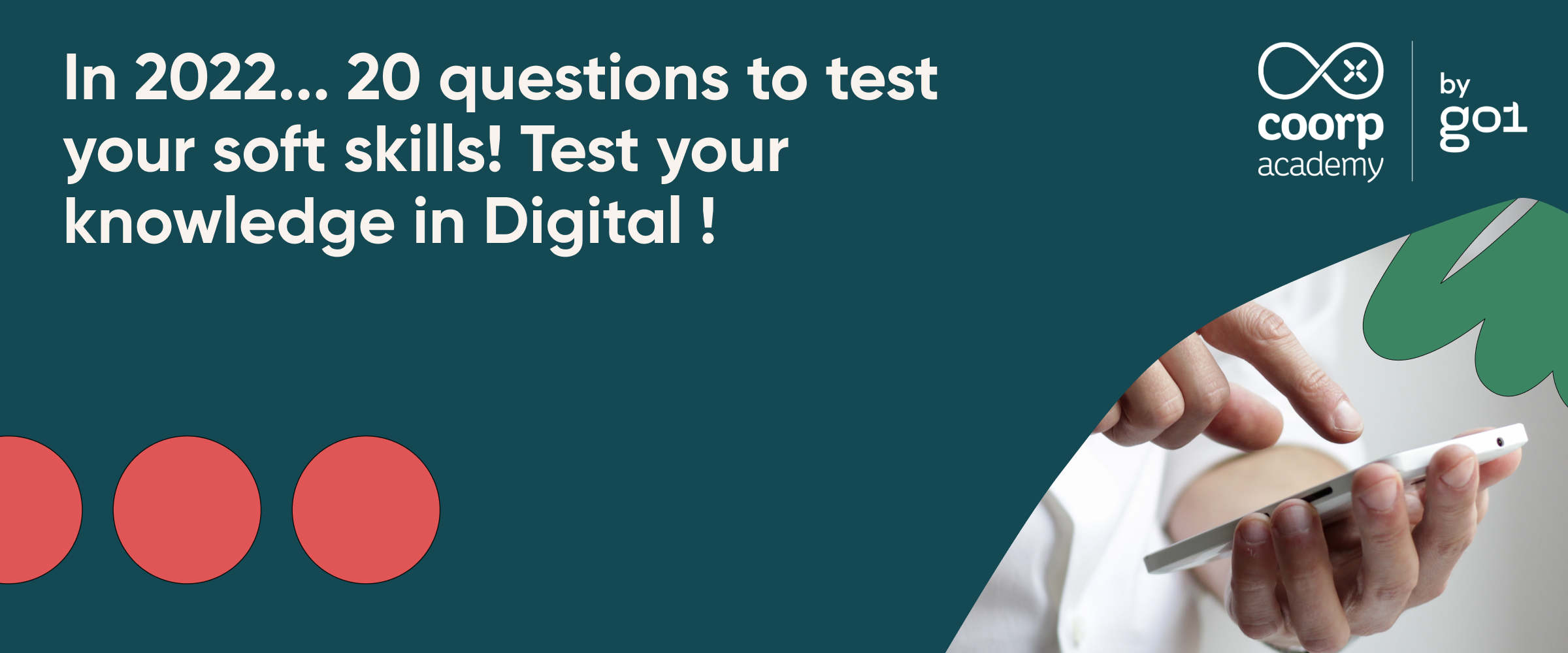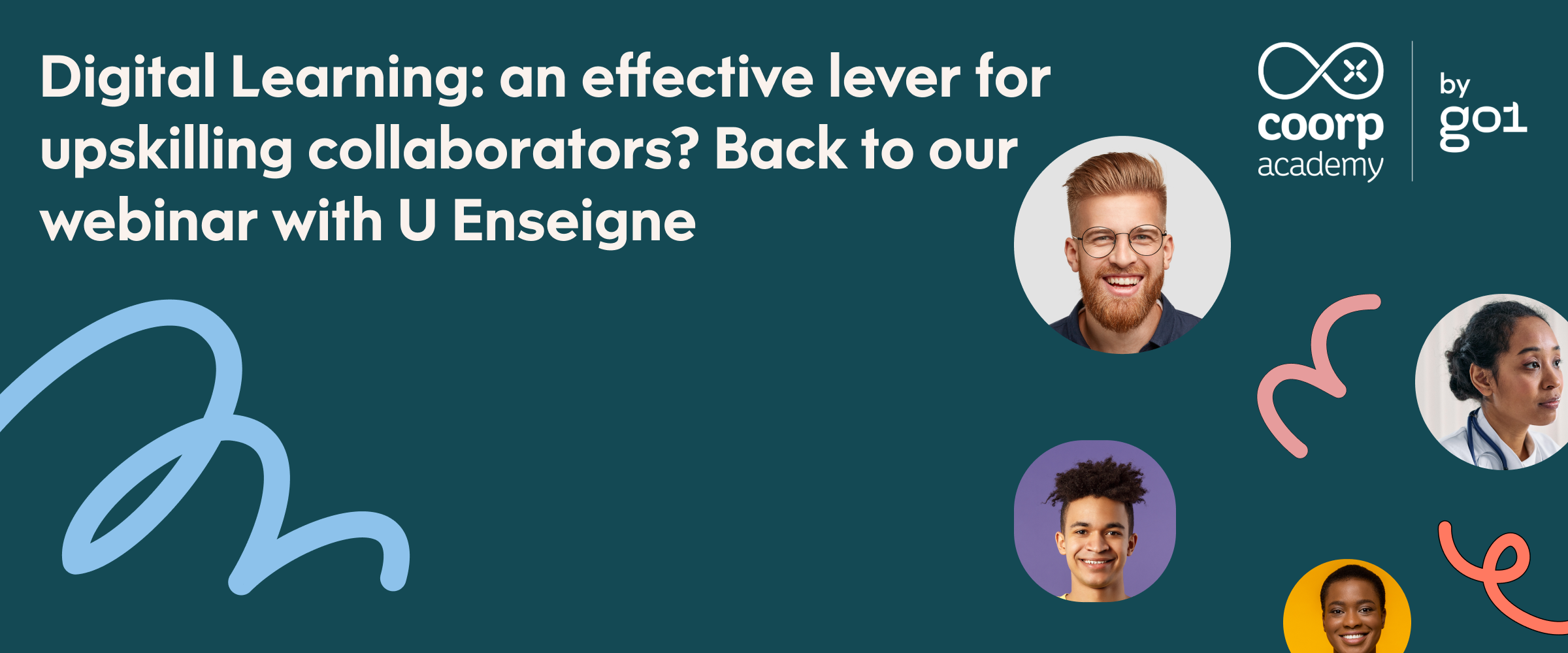In 2022… 20 questions to test your soft skills! Test your knowledge in Digital !
Learning Innovation

Soft skills are essential in a constantly changing world of work. With this test, evaluate your level on 20 essential skills, divided into 4 families: Digital / Leadership & Management / Creativity & Agility / Communication.
Welcome to the “Digital” section!
In this part, you will be tested on 5 skills:
– Digital literacy
– Awareness of digital risks
– Data literacy
– Digital dexterity
– Digital communication
Attention, there is only one correct answer per question. The answers can be found at the end of the article.
These questions are extracted from the “Test your soft skills” course, available on the Coorpacademy platform.
Question 1: How can we simply define “machine learning”?
A – A branch of artificial intelligence applied to e-learning
B – A process by which the computer learns by itself
C – A discipline whose field of study is the behavior of machines
Question 2: What is phishing?

A – An unsolicited and massively distributed e-mail
B – A hacking technique used to recover personal data
C – A kind of computer virus contained in a USB key or a hard disk
Question 3: What is the main purpose of cookies on the Internet?

A – To update browsing history
B – To keep data on users
C – Save passwords in the keychain
Question 4: Among these 3 propositions, which is the best definition of the cloud?
A – The storage of information or software in local servers
B – The mutualization of computer servers of all companies in the same geographical area
C – The operation of remote computer servers in order to use online services
Question 5 : The notion of “Owned Media” refers to the advertising spaces bought by a brand: banner, keywords, TV, press, radio… True or false ?
A – True
B – False
Rate yourself!
Question 1: How can machine learning be simply defined?
Correct answer: Answer B – A process by which a computer learns by itself.
Machine learning is a set of methods in artificial intelligence aimed at developing algorithms that are not a set of rigid rules, but a learning-by-example environment, using large amounts of data provided to the algorithm. For example, coding rules to spot a cat in an image belongs to symbolic programming, the traditional approach to AI. On the other hand, training an algorithm on the basis of tens of thousands of images (some containing cats and others not) so that it can spot the similarities that allow it to detect a cat is machine learning.
To learn more, check out Fabernovel Institute’s “Introduction to Artificial Intelligence” course.
Question 2: What is phishing?
Correct answer: Answer B – A hacking technique used to retrieve personal data.
For more information, see the course: “Digital Risk Prevention” from Wolters Kluwer.
Question 3: On the Internet, what are cookies primarily used for?
Correct answer: Answer B – To store data about users.
To learn more, consult the course: “Marketing and online advertising” from Coorpacademy.
Question 4: Which of the following is the best definition of the cloud?
Correct answer: Answer C – The operation of remote computer servers for the purpose of using online services.
Cloud computing refers to the exploitation of remote computing resources, allowing the use of online and on-demand services or the storage of data. The user can connect to services from anywhere, anytime, from a computer, tablet, mobile or TV.
To learn more, consult the course: “The Big Data phenomenon” from Coorpacademy.
Question 5 : The notion of “Owned Media” refers to the advertising spaces bought by a brand: banners, keywords, TV, print media, radio…
Correct answer: Answer B – False.
Owned Media” refers to all the contact points held by a brand: website, mobile application, blog, brochures… These media offer total control over distribution, which allows for the production of high added value content.
To learn more, consult the course: “Marketing and online advertising” of Coorpacademy.


